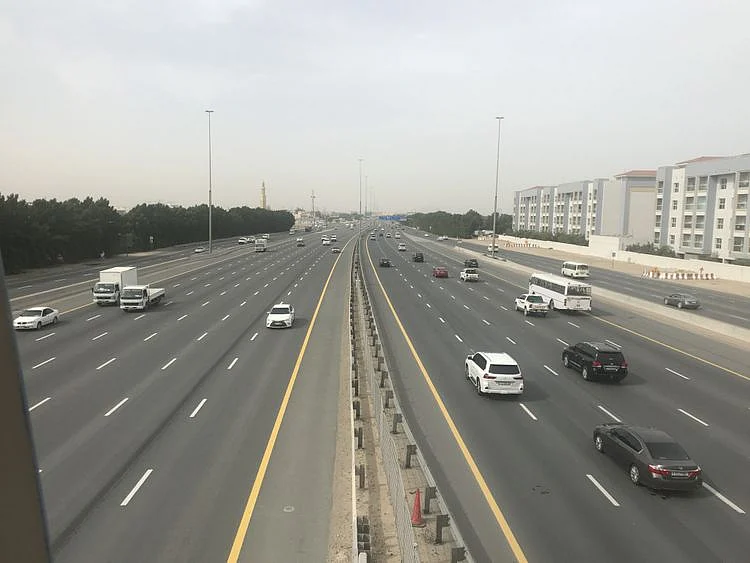Coronavirus: Increased measures will help UAE flatten curve
Increased testing and social distancing will speed up the process, says expert

Abu Dhabi: A specific timescale for when COVID-19 may start to finally peak is difficult to predict according to an expert biologist at New York University Abu Dhabi (NYUAD).
However, the good news is that measures currently being put in place such as increased testing and social distancing measures will help to speed up the process of getting there.
“It’s very hard to give an answer for when this virus will start to peak as there are a number of so many different factors that can define the curve,” said Youssef Idaghdour, assistant professor of biology at NYUAD.
“The main parameters that can define the trajectory of the curve are the levels of transmission and the public health interventions that are taking place to control the infections,” he added.
“As scientists what we can do at this stage is the use the data that has been collected over the last few months, look at the interventions that countries did and try to make predictions based on that information,” he added, also highlighting how this process was not so simple as curves differed from country to country.
“We can look at all the growth curves that happened in different countries, and sometimes within the same country you can have different curves. Worldwide there are a lot of variations in how the curve behaves. Italy is a good example of a curve that was not initially predicted.
“There are also still so many things we don’t understand about the transmission of this virus, it doesn’t behave in many ways like other viruses; talking specifically here about other coronaviruses,” he added.
Idaghdour did, however, make clear that countries taking active intervention measures, such as those seen here in the UAE, would help to mitigate the spread of the virus.
“Here in the UAE we have been able to learn so much from mistakes that have happened in other places, which is an advantage for us.
“There are two major decisions that will help flatten the curve here in the UAE; one is the spread or upscaling of testing people for COVID-19. This is a very important one and in my opinion the most effective measure that will help to flatten the curve.
“The more tests we do the more numbers we will be able to detect, and the earlier we can detect the virus gives us time to take effective measures that can stop the transmission,” he added.
“Combining testing with the other measures that have been undertaken like social distancing and limiting the number of crowds will all help to plateau the curve.”
Idaghdour also sought to ease public concerns about the rising number of cases in the UAE, calling this normal as testing numbers go up.
“It’s totally normal that the numbers we are seeing are going up, and that’s a result of increased testing and so I would not be worried about that. “In a way it’s positive because this will let the health authorities know what health measures to apply at both the population and individual level in terms of quarantining and self isolation,” he added.
Does hot weather help
Commenting on the much predicted theory of COVID-19 slowing down once temperatures warm, or when summer season approaches, Idaghdour said he wouldn’t put too much hope towards that argument.
“We actually don’t know if that’s going to be case and I would argue that it’s a very risky prediction to make. Anyone can catch COVID-19 no matter how hot or humid the weather is.
“In principle, I would say the greater time the virus remains stable in the environment, the greater capacity to infect people. So I would caution against banking too much on this idea that the virus will die down over the summer, because temperature alone cannot account for the global variations that we see,” he added.
Idaghdour said the potential was there for COVID-19 to turn into a seasonal virus like many others.
“This is a new virus for us and so we don’t have any firm data on how it will behave over seasons or how seasonal it will become.
“Off course it can come back, but I am sure governments will be much more pro active ahead of time to make sure that even if a new outbreak were to occur that we would be able to much better control it,” he added.
Vaccine
With several clinical vaccination trials already underway, Idaghdour said it could also still be a while until a vaccine would be ready on a mass scale.
“A lot of these clinical trials being undertaken now are being fast tracked to make sure this is done as fast as possible. There are limitations to doing it that way because usually with proper clinical trials there are multiple phases to go through to make sure it is safe to use on a population scale.
“Another issue scientists face is they are still trying to understand the virus itself while trying to make a vaccine, and so scientists are working very hard on all fronts,” he added.
“Keep in mind as well that this is a pandemic on a global scale, and so if a vaccine is made it’s going to take some time to produce it at a scale to satisfy the worldwide demand,” he said.
For now, Idaghdour said the development of drugs or turning to other approved drugs to treat COVID-19 was what most hospitals and health authorities were focused on.
Sign up for the Daily Briefing
Get the latest news and updates straight to your inbox
Network Links
GN StoreDownload our app
© Al Nisr Publishing LLC 2026. All rights reserved.